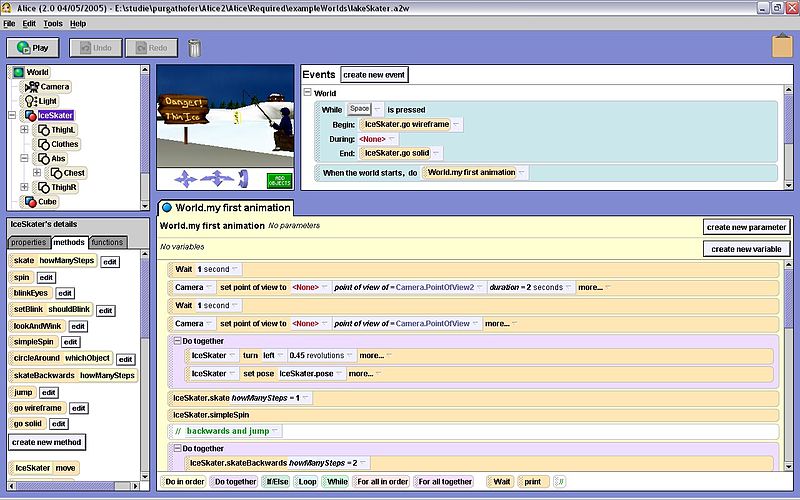

Software patents are being invalidated en masse using Alice. Not to be confused with Alice the software.
THE USPTO can grant as many software patents as it wants, but American courts reject these and litigation with such patents has become an unattractive, risky strategy. Even pursuing such patents in the first place may prove to be a waste of time and money, irrespective of the outcome at the patent office.
"Even pursuing such patents in the first place may prove to be a waste of time and money, irrespective of the outcome at the patent office."The matter of fact is, software patents should no longer be issued by the USPTO. These contribute to extortion, not innovation. Only the law firms profit from that.
The other day we saw this new rant about Alice, courtesy of Matthew Schantz who profits from legal chaos. That's just latest example of patent law firms promoting software patents and yearning for them. Watch the language of optimism and positivism: "Software patents have seen better times. The glory days of the 1980s and 1990s, after the U.S. Supreme Court held in Diamond v. Diehr (1981) that inventions implemented in software are not unpatentable just because they are implemented in software, continued long past the generalized expansion of patentable subject matter by the Court of Appeals for the Federal Circuit in State Street Bank v. Signature Financial Group (1998). But the Supreme Court shook the foundations of the software patent world in 2012 (Mayo v. Prometheus) and 2014 (Alice Corp. v. CLS Bank International), leaving business leaders (and their patent attorneys) to wonder whether — or even hope that — software patents were dead. While the U.S. Patent and Trademark Office and courts have struggled to find reasonable, “new normal” limits on software patents that are practical in application and justifiable under precedent, recent cases reflect a maturing of the law surrounding patents on software-implemented inventions."
"The matter of fact is, software patents should no longer be issued by the USPTO."That's good. That's very desirable. Just ask any software professional about it. These professionals do not want software patents, unlike those who pretend to speak on 'their behalf'. Some of them repeatedly heckle PTAB and try to slow it down, for it invalidates a growing number of software patents these days (a lot more than courts do). Patently-O, one of the scarcely-closeted opponents of PTAB, only accentuates the negatives, not the positives, and then proceeds to looking into SCOTUS cases that have nothing whatsoever to do with software patents. The first of these says: "A newly filed petition for writ of certiorari offers a substantial challenge to the quick-look eligibility decisions that have been so popular among district courts. The challenge here is especially focused on no-evidence eligibility decisions that serve as a substitute for an obviousness determination."
Again, he is hoping to slow down (or prevent) invalidation of bogus patents. The second of these says: "The Court affirmed that requirement in a non-patent case, Goodyear Tire & Rubber Co. v. Haeger (Apr. 18, 2017). In that case, Goodyear engaged in a years-long effort to hide key documents from the plaintiffs, who, not knowing of them, settled the case. When they sought sanctions, the district court awarded all of the litigation fees the plaintiff had incurred from the time when the scheme had begun: $2.7 million. It also held, conditionally, that $2 million was caused directly by the shenanigans."
"Maybe we can urge some readers of ours to submit an amicus brief to explain why software patents are a bad idea and Alice already tackling the issue means that there's no point revisiting the matter."But this case isn't even about patents. Why is Patently-O covering this?
The threat that SCOTUS will revisit Alice-type cases isn't quite there, at least not yet. Watchtroll is trying to change this right now, by urging (in the form of amici) an escalation of a software patents case to SCOTUS. To quote: "BBiTV appeals from the Federal Circuit’s Rule 36 affirmance of two summary judgment decisions in which the district court found claims of U.S. Patent No. 7,631,336, entitled “Method for converting, navigating and displaying video content uploaded from the internet to a digital TV video-on-demand platform,” to be directed to the abstract idea of “using the same hierarchical ordering based on metadata to facilitate the display and locating of video content.” The following excerpts of the Petition set forth the issues presented and portions of BBiTV’s arguments. Amicus briefs in support of the Petition are due by May 15, 2017."
Maybe we can urge some readers of ours to submit an amicus brief to explain why software patents are a bad idea and Alice already tackling the issue means that there's no point revisiting the matter.
"Software patents are on the rocks in the United States, but this should not be taken for granted and we must never rest on our laurels knowing that the opposition, i.e. those who prey on software developers, try to overturn and cancel prior decisions."We are no doubt going to see many more attempts like the above to crush Alice. There is in fact a whole "task force" now, led by IBM and its lobbyists (people like David Kappos), dedicated to doing just that.
Software patents are on the rocks in the United States, but this should not be taken for granted and we must never rest on our laurels knowing that the opposition, i.e. those who prey on software developers, try to overturn and cancel prior decisions. ⬆